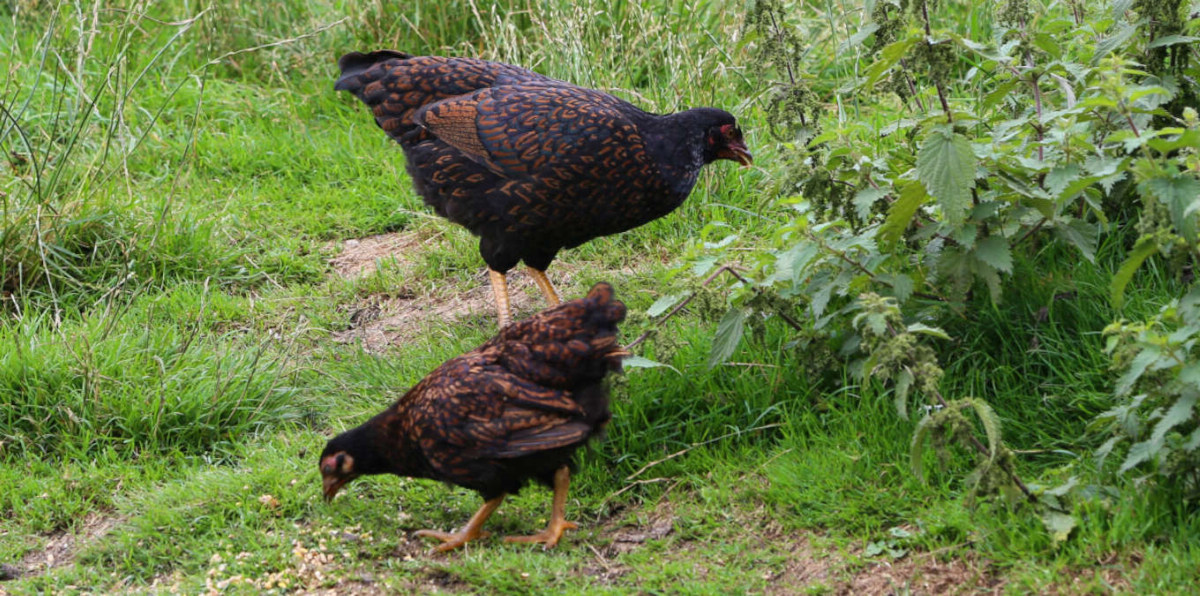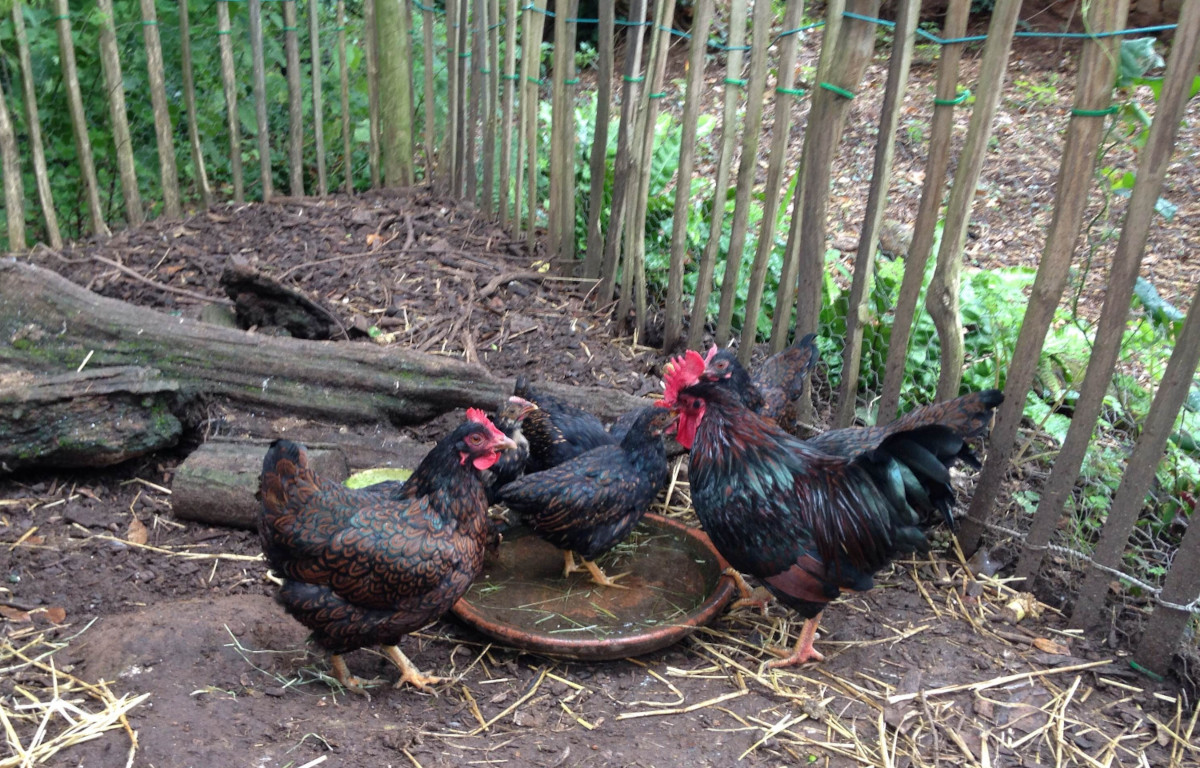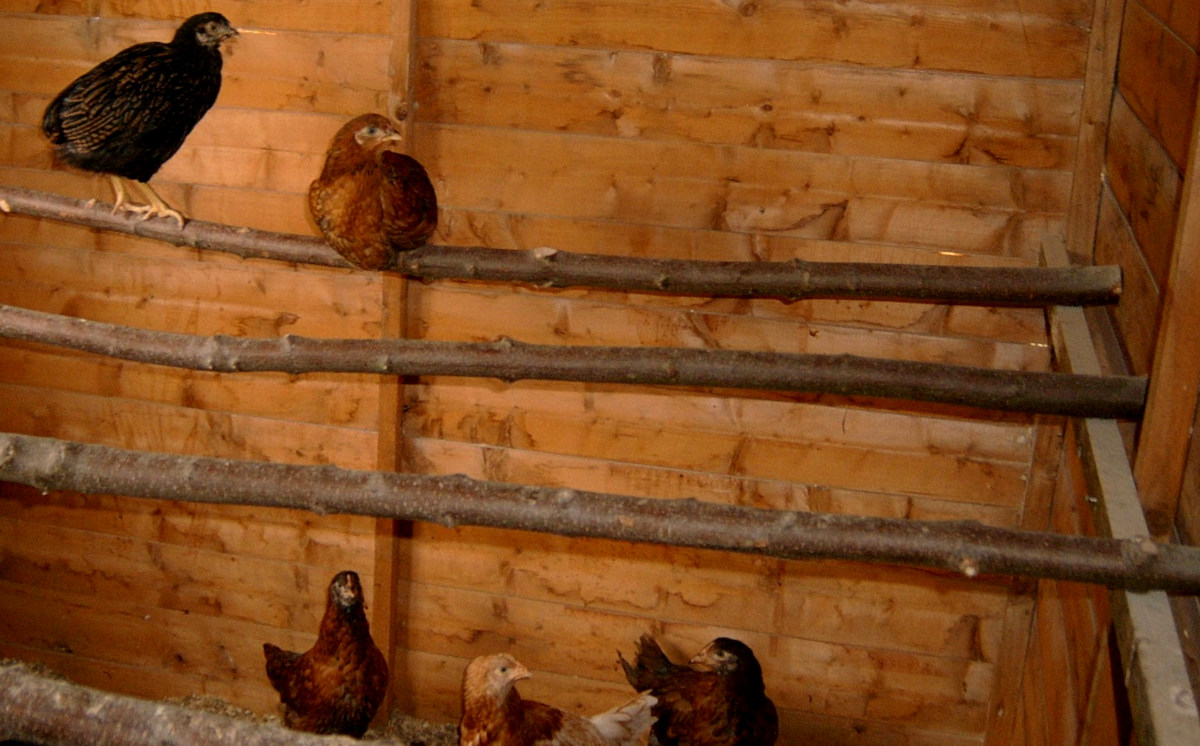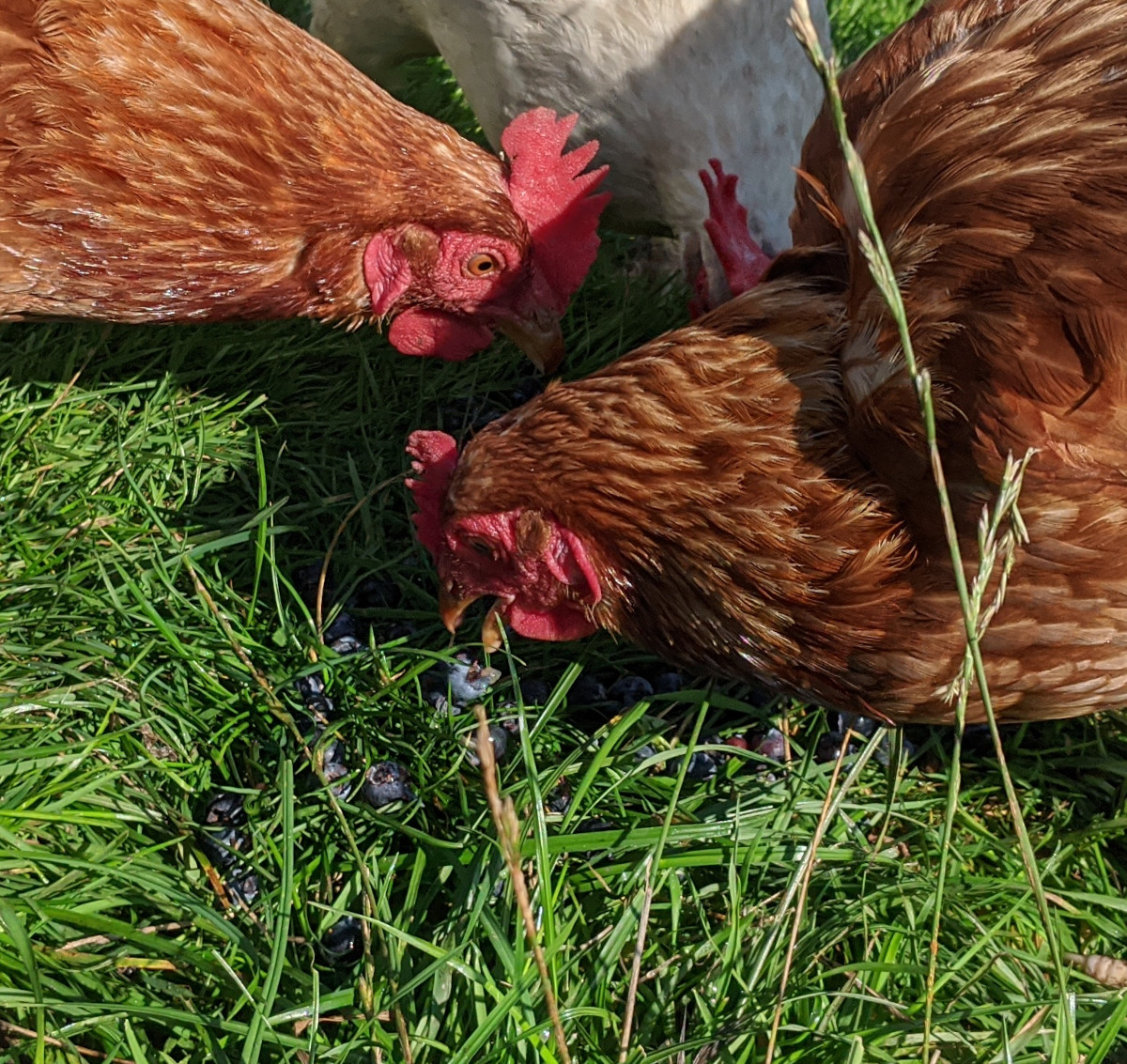Sustainable chicken keeping. Create an environmentally friendly and healthy backyard flock.

To be environmentally friendly means to act in a way that minimises harm to the natural environment and promotes sustainability.
Table of Contents
When it comes to poultry and chicken keeping this can include reducing waste, recycling, conserving resources, using renewable energy sources, and avoiding activities that cause pollution or damage to ecosystems.
What is the carbon footprint of backyard chickens?
The carbon footprint of backyard chickens can vary depending on several factors such as the number of chickens, their diet, the type of housing they have, and how their waste is managed.
Backyard chickens have a smaller carbon footprint than commercially raised chickens since they require less transportation and energy for processing and packaging.
Backyard chickens still produce greenhouse gases through their feed production, transportation, and waste management. The carbon footprint of their feed can be reduced by feeding them locally-sourced and organic feed, and by avoiding soy-based feed which is associated with deforestation in some areas.
Eco chicken keeping could also help save you money on your chickens.
Below: Homemade sustainable wooden fences.

In terms of waste management, backyard chicken owners can reduce their carbon footprint by composting chicken manure and using it as a fertiliser for gardens, rather than sending it to landfill where it produces methane, a potent greenhouse gas.
While backyard chickens can contribute to sustainable food systems, it's important for owners to take steps to minimise their carbon footprint by reducing feed waste and managing their waste in an environmentally friendly way.
Is it environmentally friendly to keep your own chickens?
Yes, overall, there are many environmental benefits to keeping your own chickens. If you are interested in living a more sustainable lifestyle, raising chickens is a great way to get started.
- Reduced carbon footprint. Raising your own chickens means that you are not contributing to the environmental impact of factory farming. Chickens raised in factory farms produce a lot of concentrated waste, which can pollute the environment.
- Free range. When you raise your own chickens, you can control what they eat and how they live, which can help to reduce their environmental impact by eating local and freely available foods.
- Less food miles. Your eggs will have only travelled from the nest box to the kitchen.
- Improved food quality. The eggs and meat produced by backyard chickens are often considered to be higher quality than those produced by factory-farmed chickens. This is because backyard chickens are able to roam freely and eat a natural diet.
- Less waste. By raising your own chickens, you can reduce the amount of food waste that you produce. Chickens can eat a lot of food scraps and other waste, which can help to reduce the amount of food that goes to landfills.
- Pest control. Chickens are natural predators of insects and other pests. By keeping chickens in your backyard, you can help to control pests without the use of pesticides.
- Sustainable living. Raising your own chickens is a way to live a more sustainable lifestyle. By growing your own food and raising your own animals, you can reduce your reliance on the industrial food system.
- Produce your own fertiliser. You can compost chicken droppings and bedding as an excellent source of fertiliser.
How can we make chicken keeping more Eco-friendly and sustainable?
Here are some tips on how to keep chickens in an environmentally friendly way:
Use sustainable materials for your chicken coop. This means using materials like reclaimed wood or recycled plastic, rather than pressure-treated lumber or PVC.
Below: My chicken coop is a reclaimed shed with natural log perches.

Compost your chicken manure. Chicken manure is a great source of nitrogen for your garden. Composting it will help to reduce its environmental impact.
Feed your chickens a healthy diet. A healthy diet for chickens should include pellets and a variety of grains, pasture, vegetables, and fruits. Avoid feeding them processed food or food that is high in sugar or fat.
Below: My chickens get all the bits and pieces we don't eat, like these over ripe blueberries, that might otherwise go to waste.

Grow some foods for your chickens. Pumpkins, corn and root vegetables like carrots and swedes are excellent foods for chickens.
Choose a heritage breed. They are often hardier and better able to forage for their own food.
Free-range your chickens. If possible, allow your chickens to roam free in your backyard or garden. This will give them more space to exercise and will help to reduce their environmental impact.
Below: The ability to free range their chickens is one of the key factors making backyard chicken keeping more sustainable.
Recycle your eggs and shells. If you have too many eggs, consider recycling them. You can give them away to friends or family, or you can donate them to a local food bank. Shells can be given back to the chickens.
Eco-Friendly chicken feed. If you have enough space to raise feed for your chickens you can eliminate the plastic feed bags and fuel needed for transporting the grain.
Low impact bedding. Consider going deep litter with your bedding or switching to sand.
Reduce plastic use. Try buying your chicken feed in paper bags rather than plastic.
Buy local and directs from the farmers. I save considerable amounts of money and time every year by buying a batch of grain direct from a local farm.
Make your own toys and treats. This avoids unnecessary plastic. Build your own chicken swing with a large stick and some rope.
Buy quality galvanised metal chicken feeders and drinkers, they last years longer and are infinitely recyclable as opposed to plastic feeders that breakdown in a few years.
Don't heat your coop. Most of the time it just is not needed.
How much CO2 does a chicken produce per year?
The amount of CO2 that a chicken produces per year can vary depending on factors such as the size of the chicken, the type of diet it is fed, and the conditions in which it is raised.
A single egg laying chicken is estimated to produce approximately 11 pounds (or 5 kg) of CO2 per year. Producing 2.2 lbs of chicken for meat emits 3.85 lbs of CO2 and 2.51 g of methane.
Depending on the breed, size and living conditions chickens can produce between 5.0 and 6.9 kg of How much CO2 does a chicken produce per year?
This estimate takes into account the CO2 emissions associated with producing and transporting chicken feed, raising and caring for the chicken, and managing its waste. However, it's important to note that this is a rough estimate and the actual carbon footprint of a chicken can vary depending on several factors.
Overall, while a single chicken may not produce a large amount of CO2, large-scale chicken farming and production can have a significant impact on greenhouse gas emissions and the environment. This is why it's important for individuals and businesses to take steps to reduce their carbon footprint and promote sustainable practices in the poultry industry.
